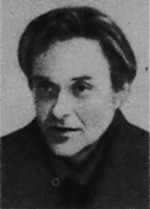Il
Il-sung, Kim (1912-1994)
Kim Il-sung was born Kim Sŏng-ju in Chŏnju, Korea. Born into a religious, Protestant family. In 1920, the Kims resettled in Manchuria, China.
At the Yuwen Middle School in Jilin, Kim became interested in Marxist ideas, and at just seventeen, was the youngest member of an underground Marxist group. This led to his arrest and jailing for several months after being discovered as a member of the group.
In 1935, Kim became a member of anti-Japanese troops in Northern China, led by the Communist Party of China. Kim took the name “Kim Il-sung” in 1935. At twenty-four, Kim commanded a division and won a victory over the Japanese which gained Kim notability amongst the Chinese. Having been promoted, 1940 saw Kim as the sole surviving 1st Army leader. Pursued into the Soviet Union by the Japanese, Kim was taken to a camp where Korean Communists were trained by the Soviets. Kim became a Captain in the Red Army.
In 1945 Kim returned to Korea with Soviet troops, who installed him as head of the Provisional People’s Committee. Kim formed the Korean People’s Army, equipped by the Soviet Union, in anticipation of conflict against South Korea. After South Korea declared independence, Kim was appointed as Prime Minister of the Democratic People’s Republic of Korea, and became vice-chairman of the Workers Party of North Korea. In 1949, the WPNK merged with the Southern Workers Party to form the Workers Party of Korea.
On 25 June, 1950, North Korean troops invaded South Korea in a bid to reunify the country. This was greeted with support from many in the South. After receiving some support from the People’s Republic of China in 1950, North Korean troops captured and occupied the capital of the South, Seoul. The counterattack by the United Nations forced Kim’s government to flee to China, before Chinese troops joined the North Koreans. When the war reached a stalemate, an Armistice Line was agreed between the two states.
As leader of North Korea, Kim centralized the government and collectivized agriculture. The economy was organized along the lines of “Juche” ideology, an interpretation of Marxism created by Kim. During the Soviet Union’s de-Stalinization, Kim split with the Soviet Union and maintained Stalinist ideals.
After the Chinese economic reforms, and the end of the Soviet Union, North Korea became increasingly isolated and suffered economic difficulties.
In 1994, Kim began projects aimed at arming North Korea with nuclear weapons, but this was disbanded the same year.
Kim died on July 8, 1994, to be succeeded as leader of North Korea by his son Kim Jong-il.
See Kim Il-Sung Archive.
Tom Rattin

Ilyenkov, Evald Vasilyevich (1924-1979)
Renowned Soviet philosopher who did important original work on the materialist development of Hegel's dialectics. His works include Dialectical Logic (1977), Leninist Dialectics and the Metaphysics of Positivism (1982) and The Dialectics of the Abstract and Concrete in Marx's Capital (1982). The latter two works were published posthumously as Ilyenkov committed suicide in 1979.
David Bakhurst writes in his article; ‘Meaning, Normativity and the Life of Mind‘ in Language and Communication, 17 (1), 33-51
“Ilyenkov was important in the revival of Russian Marxist philosophy after the dark days of Stalinism. In the early 1960s, he produced significant work in two main areas. First he wrote at length on Marx‘s dialectical method (‘the method of ascent form the abstract to concrete’). This work, though it now seems obscure, has an important political sub-text: its critique of empiricism is aimed at the positivism and scientism that Ilyenkov thought prevalent in Soviet political and intellectual culture.
“Second, Ilyenkov developed a distinct solution to what he called ‘the problem of the ideal’; that is, the problem of the place of the non-material in the natural world. The latter involves a resolute defence of the objectivity of ideal phenomena, which are said to exist as aspects of our spiritual culture, embodied in our environment. ... there are important continuities between Ilyenkov‘s ideas and controversies in Soviet philosophy and psychology in the 1920s and ‘30s, particularly ... with Vygotsky‘s socio-historical psychology.... .After the insightful writings of the early 1960s, his inspiration diminished as the political climate became more oppressive. ... He died in 1979, by his own hand.”
In an email message, Peter Jones, Sheffield Hallam University, wrote:
“On the political angle, colleagues have mentioned the difficult circumstances under which Ilyenkov and his colleagues worked. Ilyenkov indeed suffered from the ministrations, censorship and repressive activity of the regime on different occasions and in different ways (although his work was also celebrated). But Ilyenkov was an absolutely sincere Marxist and communist (with a small c). His political and economic writings (none of which have so far appeared in English to my knowledge) posthumously published in the 1991 Collected Works volume show him as a trenchant Marxist critic of official soviet ideology and ‘socialist economics’ and there is no wonder these things were not published (or perhaps were not even submitted for publication) during his lifetime.”
An article: Marx and the Western world, was published in English in a book of the same name in 1967, but this work is little known. A collection of his work was published by Marxists Internet Archive Publications in 2009 as “The Ideal in Human Activity.”
See Ilyenkov Archive.